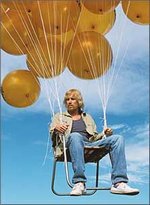I was pondering a few topics that have been coming up recently regarding leadership, but yesterday one of the greatest leaders of our time, Steve Jobs, passed away. My partner sent me this from Apple and I wanted to share it:
“Here’s to the crazy ones. The misfits. The rebels. The trouble-makers. The round pegs in the square holes. The ones who see things differently. They’re not fond of rules, and they have no respect for the status-quo. You can quote them, disagree with them, glorify, or vilify them. But the only thing you can’t do is ignore them. Because they change things. They push the human race forward. And while some may see them as the crazy ones, we see genius. Because the people who are crazy enough to think they can change the world, are the ones who do.”
What does this tell us about leadership? Are great leaders necessarily rebels?
By coincidence I was reading another article about Steve Jobs written just 13 days before his passing: “What Steve Jobs Taught Me About Growth” One gets the sense of a creative visionary
rebel who’s charisma and stubborn passion moves people to reach higher. Moves them not so much as a pull but a push. Less about eliciting the collective wisdom than inviting those who can contribute to his vision to come on board, and pushing the rest off the boat.
There are many styles of leadership and some would say that each has it’s place in the context of the organization and it’s needs. But if leadership is about taking the lead, moving into the unknown future, then perhaps it isn’t a menu of different styles for different needs? Maybe that’s an excuse to reconcile the fact that only a very small percentage of our leaders are as visionary as Steve Jobs was? Or as bold?
What stands out for me in reading the quote and article above is this. Leadership that makes a difference in the world is focused on a future distinct from the past. It’s based on a conversation about possibilities that can only be imagined, since there is no map to follow. One might say it involves risk, but I don’t think so, if you’re that leader. From that perspective it’s about commitment. What others call risk the leader calls learning. It’s just what unfolds when you do anything the first time.
Think of some of your own first times. I recall trying to install an over-the-range
microwave oven. I even had my map – a set of instructions. As I followed them and proceeded to yank the old unit from the wall I was certain that I was on the verge of taking down the drywall. I called a friend who knew the territory. He came over and yanked at that same unit the same way. But where I stopped out of fear of certain damage, he yanked harder and the unit came off. That’s just how hard you needed to do it. Now I know. Was I concerned about the risk to my wall? Or was I not committed enough? Where do we draw that line?
What if I had no one to call, because this was really new territory? What does that take?
I followed my friend’s lead because he had been there before. But what of leaders like Steve Jobs? You don’t follow them because they’ve been there. There’s no there yet. So why do we follow them? Maybe it’s because they see a future that taps into something we connect to but we get stuck on the how, whereas they blaze a pathway purely out of commitment? Maybe it’s that bold confidence that transforms uncertainty into a natural part of movement? Maybe it’s an authentic unselfish yearning for something bigger and greater that taps into the deepest part of being human that makes following a Steve Jobs irresistible, despite the stubborn perfectionism?
I’d like to finish this with the appropriate bullet points providing a roadmap for aspiring leaders. But if Steve Jobs taught us anything, it’s that roadmaps can only take us where we’ve already been. So instead I leave you at the crossroads that Steve Jobs took us to. What does it take to create a future distinct from the past?
I’d love to hear your thoughts.









Social Links